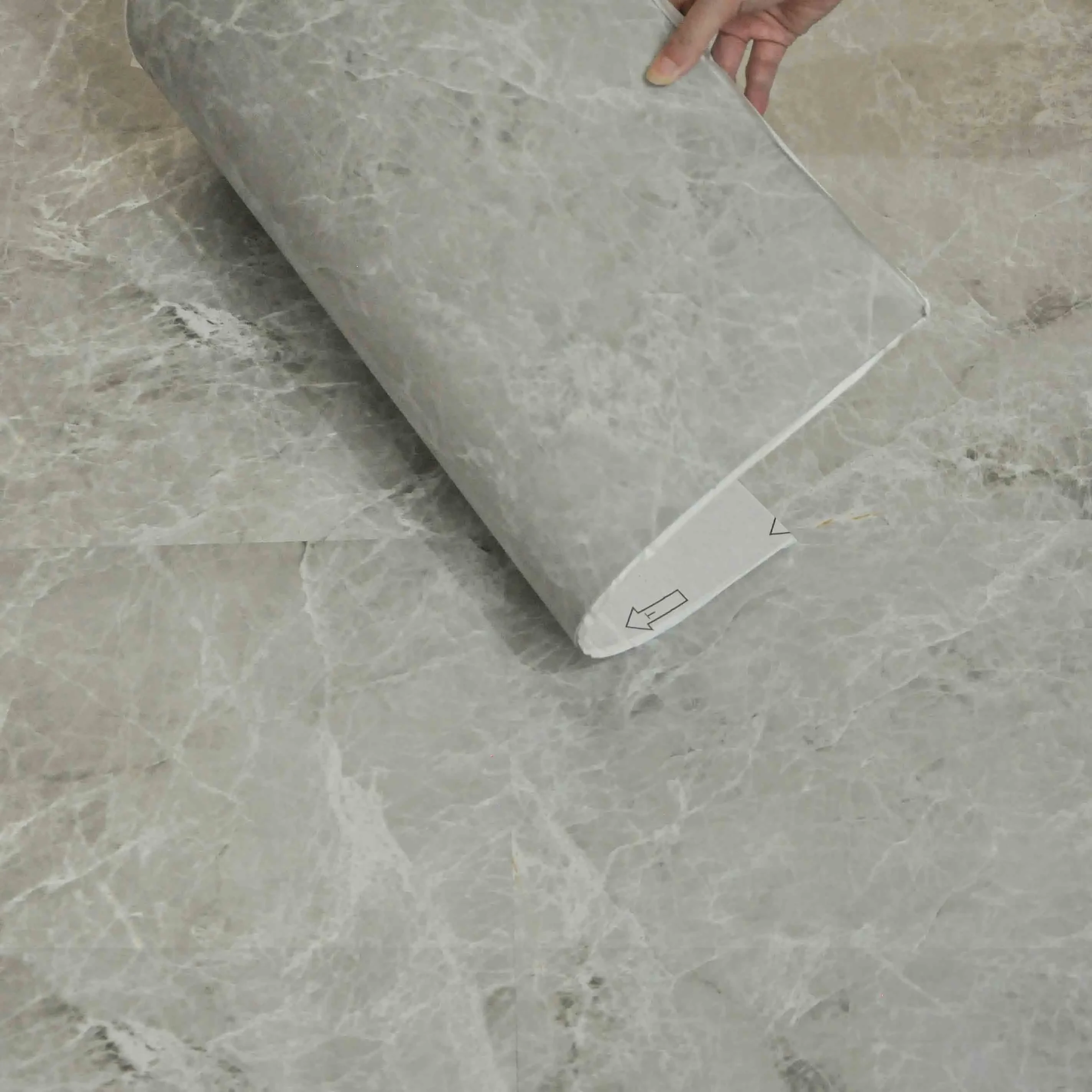Email format error
Email cannot be empty
Email already exists
6-20 characters(letters plus numbers only)
The password is inconsistent
Email format error
Email cannot be empty
Email does not exist
6-20 characters(letters plus numbers only)
The password is inconsistent


PVC flooring has gained immense popularity worldwide due to its durability, aesthetic appeal, and cost-effectiveness. As the demand for PVC flooring rises, so does the need for high-quality adhesives that ensure a long-lasting bond and superior performance. In this comprehensive guide, we will explore everything you need to know about adhesive for PVC flooring export, including its importance, types, application methods, and key considerations for exporters. By the end of this article, you will have a thorough understanding of the adhesive for PVC flooring export market and how to succeed in it.
Why Adhesive for PVC Flooring is Crucial
Ensuring Durability and Performance
The primary role of adhesive for PVC flooring is to secure the flooring material firmly to the substrate. This bond is critical for the durability and overall performance of the flooring. A strong adhesive prevents the flooring from lifting, bubbling, or shifting, ensuring it remains intact and functional over time. For exporters, providing reliable adhesive for PVC flooring export is essential to meet the high standards of international markets.
Enhancing Aesthetic Appeal
A well-applied adhesive ensures that the PVC flooring lies flat and smooth, enhancing its aesthetic appeal. Poor adhesive quality or application can lead to visible seams, gaps, or uneven surfaces, detracting from the flooring's appearance. Exporters must prioritize quality adhesive for PVC flooring to maintain the visual appeal that consumers expect.
Adapting to Different Environments
Different regions have varying environmental conditions, such as humidity, temperature, and moisture levels. The right adhesive for PVC flooring export must be versatile enough to perform well under diverse conditions. This adaptability ensures that the flooring remains stable and secure, regardless of the climate.
Types of Adhesive for PVC Flooring Export
Water-Based Adhesives
Water-based adhesives are popular due to their low environmental impact and ease of use. They are non-toxic, emit low levels of volatile organic compounds (VOCs), and are easy to clean up with water. These adhesives are ideal for indoor installations and are a top choice, especially in regions with strict environmental regulations.
Solvent-Based Adhesives
Solvent-based adhesives offer strong bonding capabilities and are suitable for a wide range of substrates. They provide excellent resistance to moisture and temperature fluctuations, making them ideal for areas with extreme environmental conditions. However, they emit higher levels of VOCs, which can be a concern in some markets. Exporters need to be aware of these factors when choosing solvent-based adhesive for PVC flooring export.
Pressure-Sensitive Adhesives
Pressure-sensitive adhesives (PSAs) are designed to bond upon the application of pressure. They offer the advantage of immediate bonding without the need for curing time, making installation quicker and more convenient. PSAs are commonly used in modular PVC flooring installations and are a valuable option for adhesive for PVC flooring export, particularly in commercial settings.
Polyurethane Adhesives
Polyurethane adhesives are known for their exceptional strength and flexibility. They provide a durable bond that can withstand heavy foot traffic and mechanical stress. These adhesives are suitable for both indoor and outdoor installations, making them a versatile choice. Their ability to bond with various substrates further enhances their appeal.
Application Methods for Adhesive for PVC Flooring Export
Trowel Application
Trowel application is a traditional method where adhesive is spread onto the substrate using a notched trowel. This technique ensures even distribution and strong bonding. It is widely used for large-scale installations and is a reliable method. The key to success with trowel application is selecting the right trowel size and notch pattern for the specific adhesive and flooring type.
Spray Application
Spray application involves using a spray gun to apply adhesive evenly across the substrate. This method is efficient and reduces the labor required for large installations. Spray application is particularly beneficial in commercial and industrial projects where speed and consistency are crucial. Proper ventilation and protective equipment are essential when using spray adhesives to ensure safety.
Roll-On Application
Roll-on application uses a roller to apply adhesive, offering a balance between control and efficiency. This method is suitable for both small and large installations and is a common choice for adhesive for PVC flooring export. Roll-on application allows for precise control over the adhesive thickness and coverage, making it a versatile option for various project sizes.
Tape Application
Double-sided adhesive tapes are a convenient option for modular and temporary PVC flooring installations. These tapes provide immediate bonding and are easy to apply and remove. Tape application is ideal in markets that require quick installation and minimal disruption, such as trade shows or rental properties.
Key Considerations for Adhesive for PVC Flooring Export
Regulatory Compliance
When exporting adhesive for PVC flooring, it is crucial to ensure that the products comply with the regulations and standards of the destination country. Different countries have varying requirements for VOC emissions, environmental impact, and safety. Exporters must be well-versed in these regulations to avoid legal issues and ensure a smooth entry into international markets.
Quality Assurance
Maintaining high-quality standards is essential. Exporters should implement rigorous quality control processes to ensure that each batch of adhesive meets the required specifications. This includes testing for bonding strength, curing time, and resistance to environmental factors. Providing consistent quality builds trust with international customers and enhances the brand's reputation.
Packaging and Labeling
Proper packaging and labeling are critical for the successful export of adhesive for PVC flooring. Adhesives must be packaged securely to prevent leakage or damage during transit. Labels should include detailed information about the product, usage instructions, safety precautions, and regulatory compliance. Clear and accurate labeling helps customers use the adhesive correctly and ensures compliance with local regulations.
Market Research
Understanding the target market is essential for successful adhesive for PVC flooring. Exporters should conduct thorough market research to identify the specific needs and preferences of customers in different regions. This includes analyzing competitor products, pricing strategies, and distribution channels. Tailoring the product offering to meet local demands can significantly enhance market penetration and sales.
Logistics and Distribution
Efficient logistics and distribution are crucial for the timely delivery. Exporters should partner with reliable shipping and logistics providers to ensure that products reach their destination without delays. This includes optimizing packaging for transportation, managing customs documentation, and coordinating with local distributors. A well-organized supply chain enhances customer satisfaction and fosters long-term business relationships.
Case Studies: Successful Adhesive for PVC Flooring Export
Case Study 1: Expansion into the European Market
A leading manufacturer of adhesive for PVC flooring decided to expand its operations into the European market. The company conducted extensive market research to understand the regulatory requirements and customer preferences in different European countries. They developed a range of low-VOC, water-based adhesives that complied with strict European environmental standards. The company also invested in eco-friendly packaging and clear labeling to meet local regulations.
By focusing on quality and compliance, the company successfully entered the European market and established strong partnerships with local distributors. Their adhesive for PVC flooring saw significant growth, with increasing demand from both residential and commercial sectors. The company's commitment to sustainability and quality resonated with European consumers, leading to a positive brand reputation and long-term success.
Case Study 2: Meeting the Needs of the Asian Market
An adhesive manufacturer aimed to penetrate the rapidly growing Asian market, where the demand for PVC flooring was on the rise. The company identified that many Asian countries had high humidity levels, which could affect the performance of traditional adhesives. To address this challenge, they developed a range of solvent-based adhesives with enhanced moisture resistance.
The company also adapted its packaging and labeling to include multiple languages and culturally relevant information. By understanding the unique needs of the Asian market and offering tailored solutions, the company achieved significant market share. Their adhesive for PVC flooring became a preferred choice for large construction projects and residential developments across Asia.
Future Trends in Adhesive for PVC Flooring Export
Eco-Friendly Adhesives
As environmental awareness grows, the demand for eco-friendly adhesives is expected to increase. Manufacturers are investing in research and development to create adhesives with lower VOC emissions and sustainable raw materials. These eco-friendly options are likely to become a standard requirement, especially in regions with strict environmental regulations.
Advanced Adhesive Technologies
Technological advancements are driving the development of innovative adhesive solutions. Smart adhesives with self-healing properties, temperature-sensitive bonding, and enhanced durability are emerging in the market. These advanced adhesives offer superior performance and open new possibilities. Keeping up with these technological trends can give exporters a competitive edge.
Customized Solutions
The trend towards customization is influencing the adhesive industry. Customers are seeking tailored solutions that meet their specific needs and preferences. Manufacturers are responding by offering customized adhesive formulations and packaging options. This trend is particularly relevant, where different regions have unique requirements. Providing personalized solutions can enhance customer satisfaction and loyalty.
Digital Marketing and E-Commerce
The rise of digital marketing and e-commerce is transforming the way adhesive for PVC flooring export is conducted. Manufacturers and exporters are leveraging online platforms to reach a global audience and streamline sales processes. Digital marketing strategies, such as search engine optimization (SEO), social media marketing, and online advertising, are crucial for building brand awareness and driving international sales.
Conclusion
The adhesive for PVC flooring export market offers significant opportunities for manufacturers and exporters. By understanding the importance of quality adhesives, selecting the right types, mastering application methods, and considering key factors such as regulatory compliance and market research, companies can succeed in this competitive industry. As future trends continue to shape the market, staying informed and adaptable will be key to maintaining a strong presence in the global adhesive for PVC flooring export market. With the right strategies and a commitment to excellence, businesses can achieve lasting success and growth in this dynamic field.